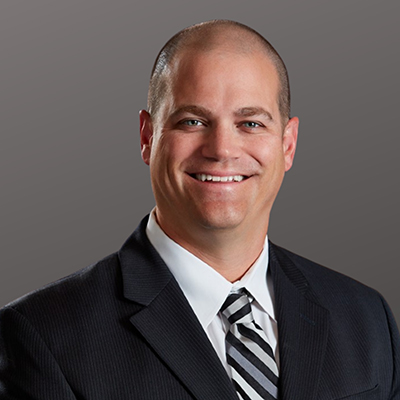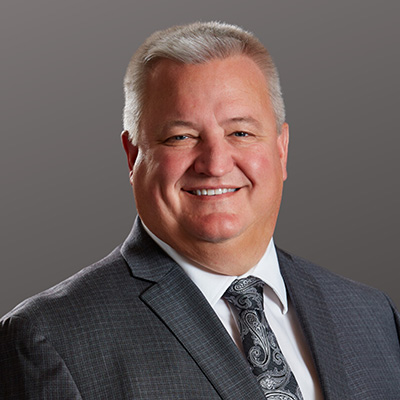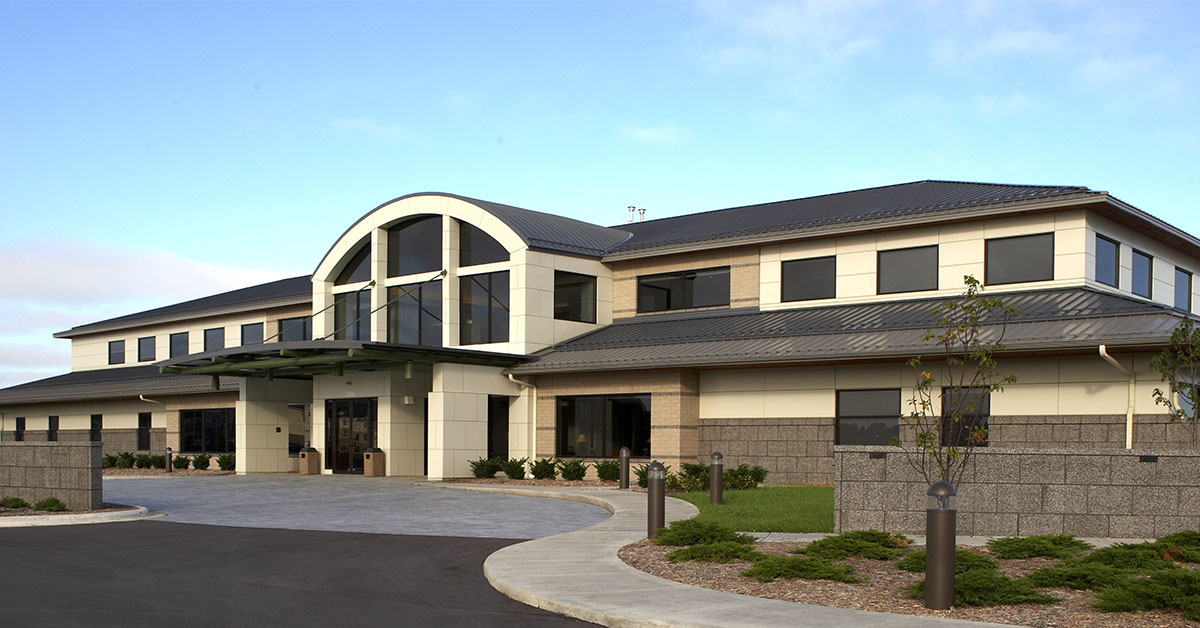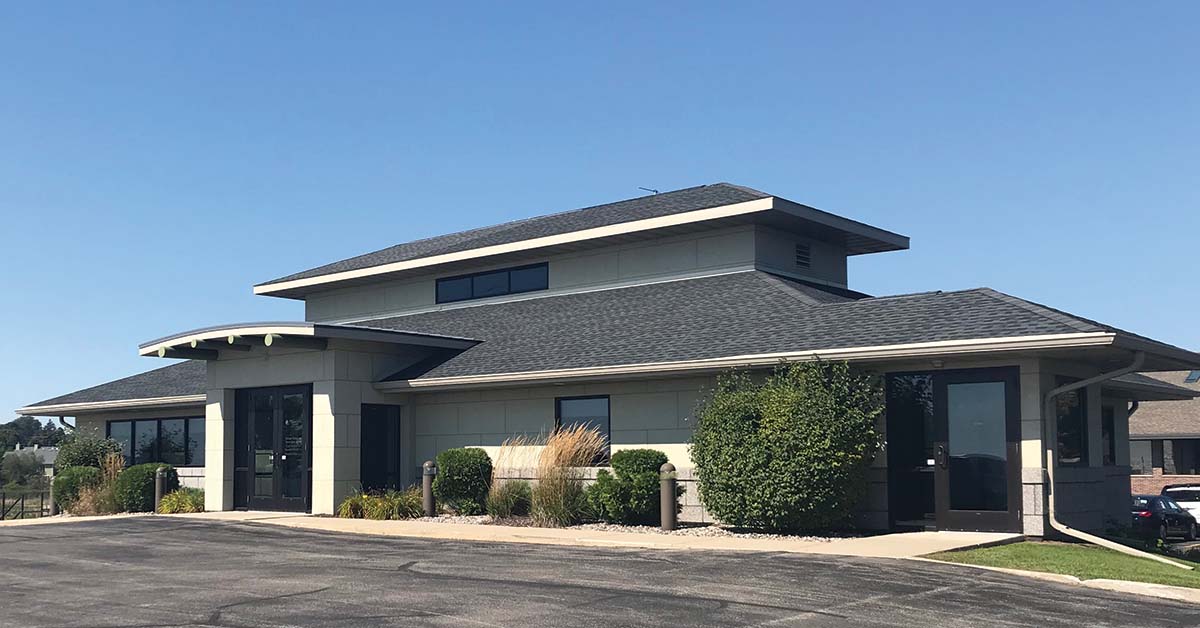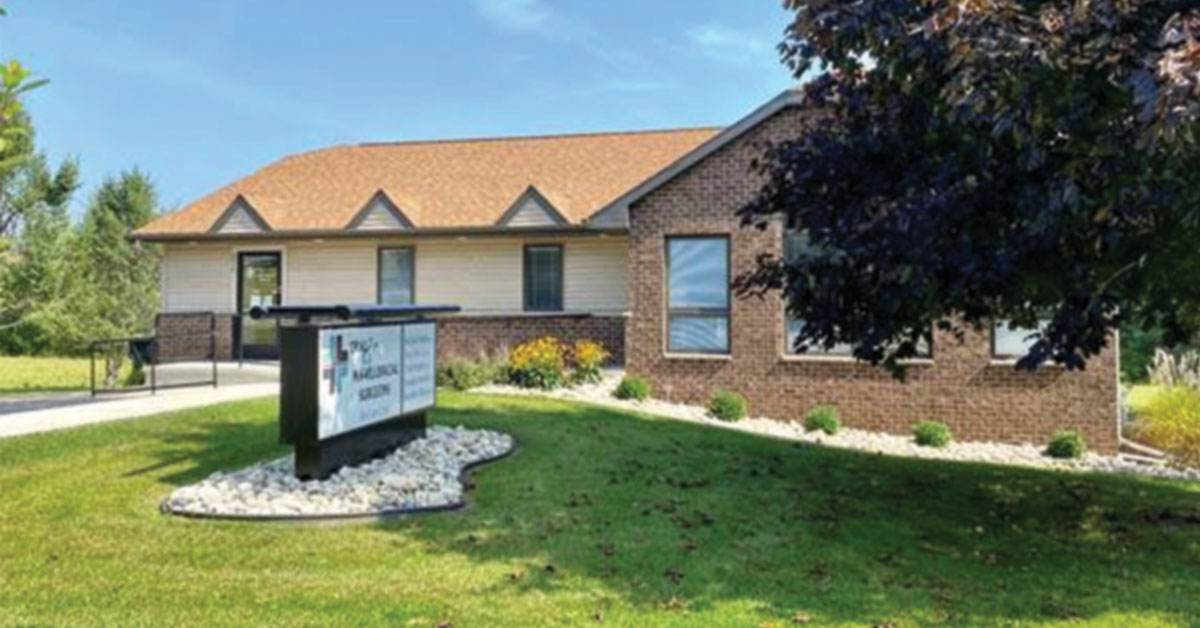What to Expect
- Wisdom Teeth Management
- Dental Implant Surgery
- Extractions and Dental Alveolar Surgery
- Facial Injury and Trauma Treatment
- Corrective Jaw Surgery
- Oral Surgery to Assist Orthodontics
- TMJ and Facial Pain Management
- Cleft Lip and Palate
- Oral Pathology and Soft Tissue Surgery
- Obstructive Sleep Apnea Solutions
- Anesthesia Options
Your visit to Oral Surgery & Implant Specialists BayCare Clinic
People who have oral or maxillofacial procedures at Oral Surgery & Implant Specialists BayCare Clinic can expect a consistent experience no matter how many visits they make to our offices.
Consultations with our oral surgeons and nurse practitioners usually are scheduled after a referral from a dentist.
Consultations are recommended for people who are on blood thinners, who have extensive medical histories, who take multiple medications, or who have complex treatment plans. Consultations also can be done at the patient’s request and if required by insurance.
What happens at a consultation?
At a consultation, an oral surgeon or nurse practitioner will discuss the person’s medical and surgical history, allergies and medication. The oral surgeon and nurse practitioner will evaluate the case, make a diagnosis and create a treatment plan. Treatment and anesthesia options will be discussed, along with the imaging needed for the case. The oral surgeon also will discuss the treatment plan with the referring dentist.
What happens after a procedure?
Our oral surgeons and staff will provide instructions for home care. All of your questions and concerns will be addressed.
People who have oral and maxillofacial procedures are encouraged to call our office with any questions or concerns at any time of day or night. An oral surgeon is on call 24 hours a day, seven days a week.
Our oral surgeons also communicate treatments with the referring dentist within days of any procedure.
Post-op expectations
The best outcome from any oral surgery procedure happens when people follow all instructions for caring for themselves after surgery. Proper care for the mouth and facial structures is important for recovery.
Post Operative Instructions by Procedure
Expand each topic below for more information.
BLEEDING
- Bite down gently but firmly on the gauze pack(s) that has been placed over the surgical area(s), making sure it remains in place. The purpose of the gauze is for pressure.
- Do not change the gauze for 30 minutes unless the bleeding is not being controlled.
- If active bleeding persists after 30 minutes, place a new, cold dampened gauze pack over the surgical site for another 45-60 minutes. The gauze may be changed as necessary. It is normal for the gauze to be pink or tinged with blood when you discard it.
- DO NOT SPIT, DO NOT RINSE, DO NOT USE A STRAW for the first 24 hours.
SWELLING
- To minimize swelling when awake, apply a cold pack or ice bag wrapped in a towel to your face (20 minutes on, 20 minutes off) for the first 48 hours.
- This may be extended beyond 48 hours to aid with comfort.
- Stiffness of the jaws may accompany swelling.
ORAL HYGIENE
- Do not disturb the surgical area today. Do not rinse for 24 hours or probe the area with any objects or your fingers.
- You may brush your teeth gently. Cleanliness after surgery is necessary for a rapid and uncomplicated recovery. Food left in the wound sites delays healing and invites infection.
- After 24 hours, rinse with ¼ teaspoon of salt dissolved in an 8 oz. glass of warm water to help keep the area clean. Repeat as often as you like, but at least 2 to 3 times daily for the next week.
- DO NOT SMOKE for 4 days as it will slow the healing process.
DIET
- For your own comfort, begin by eating soft foods or liquids such as soup, soft-boiled eggs, soft cereals, etc.
- Resume solid food as tolerated.
- Continue with a diet high in protein and complex carbohydrates for adequate nourishment.
- If you are diabetic, maintain your normal eating habits as much as possible, and follow instructions from your physician regarding your insulin schedule.
NAUSEA/VOMITING
- Some patients experience nausea and vomiting after surgery with anesthesia.
- The two main causes are either a side effect to the anesthetic, or more commonly, a reaction to the narcotic pain medicine if prescribed (Percocet, Tylenol with codeine, Hydrocodone, etc.).
- Nausea and vomiting related to narcotic medicine can last for many hours after taking a single dose.
- Nausea may be reduced by eating a small amount of soft food first then taking the pill(s) with a glass of water.
- Nausea may also be avoided by taking over-the-counter pain medicine instead of a narcotic.
- If nausea continues, drink 1-ounce carbonated water, such as ginger ale or 7-Up, every hour for 5 to 6 hours. This can be followed with a mild tea, clear soup, Jello, etc. Drinking cola beverages with less carbonation may also help with nausea.
- If your nausea and/or vomiting persists, the provider may prescribe medicine to help with the symptoms. Please contact our office if this occurs.
DISCOMFORT
- All surgery is associated with some degree of pain. If your surgery was more extensive, you may have more post-operative pain.
- Pain and tenderness after oral surgery can often last for a week, and in some cases, longer.
- The most discomfort usually occurs within the first 24 hours after the anesthetic wears off.
- Patients often experience worse discomfort at night. Usually, medicine is sufficient to treat this.
- Common pain control medicines include over-the-counter medications such as ibuprofen (Advil/Motrin)
or acetaminophen (Tylenol) or prescription narcotics such as Percocet or Hydrocodone. - Typically, we suggest you start taking over-the-counter ibuprofen or acetaminophen alternating every 4
hours. The timing of these over-the-counter medications can be staggered to provide more continuous
pain control. - You may find that you need to take several doses of the ibuprofen or acetaminophen throughout the
day during the first 1 to 2 weeks of your recovery. However, generally pain levels and the need to take
medication decreases in the days following your procedure. - Effects of pain medicines vary widely among individuals, and sometimes a prescription such as a
narcotic may be prescribed, depending on the type of procedure performed. - If you take the first dose of the narcotic before the anesthetic has worn off, you will be able to better
manage any discomfort.- If you do not achieve adequate relief with the narcotic, you may supplement each pill with an
over-the-counter pain medicine. - It is important that you follow the narcotic prescription instructions provided by the pharmacist,
and remember, narcotics provide pain relief but can have addictive properties. - Refrain from drinking alcohol while taking any narcotic medication as this can cause serious
health risks.
- If you do not achieve adequate relief with the narcotic, you may supplement each pill with an
- It is important that you do not exceed the maximum recommended dosages for any pain medication, especially if you are taking over-the-counter medications along with a prescription medication. Please be aware that Hydrocodone, Tylenol with codeine, and Percocet all contain acetaminophen – the same ingredient as in Tylenol. Ibuprofen is the same active ingredient in both Motrin and Advil.
- For maximum daily dose of acetaminophen or ibuprofen, please refer to the manufacturer’s
packaging or your provider.
- For maximum daily dose of acetaminophen or ibuprofen, please refer to the manufacturer’s
- Taking your medicine as directed by the provider will help reduce pain to a tolerable level. No pain
medicine will eliminate all pain; however, medicines should reduce the pain. - Pain that suddenly worsens a few days after surgery is not expected and may indicate that an infection
or dry socket is developing. If this occurs, contact the office for further direction.
DRIVING
- Do not drive or operate machinery for 24 hours after anesthesia or while taking prescription pain
medication.
ACTIVITY
- Follow any activity limitations as directed by your provider.
COMPLICATIONS
- If problems develop or you have questions about your surgery, please contact us.
BLEEDING
- In most cases, there will be minimal bleeding since the wound is often closed with sutures. Some bleeding and oozing may be expected during the first 24 hours.
- Bite down gently but firmly on the gauze pack(s) that has been placed over the surgical area(s), making sure it remains in place. The purpose of the gauze is for pressure.
- Do not change the gauze for 30 minutes unless the bleeding is not being controlled.
- If active bleeding persists after 30 minutes, place a new, cold dampened gauze pack over the surgical site for another 45-60 minutes.
- The gauze may be changed as necessary. It is normal for the gauze to be pink or tinged with blood when you discard it.
- If used, the sutures are usually the dissolving type that will fall out on their own 5–10 days after surgery.
- DO NOT SPIT, DO NOT RINSE, DO NOT USE A STRAW for the first 24 hours.
SWELLING
- To minimize swelling when awake, apply a cold pack or ice bag wrapped in a towel to your face (20 minutes on, 20 minutes off) for the first 48 hours.
- This may be extended beyond 48 hours to aid with comfort.
- Stiffness of the jaws may accompany swelling.
ORAL HYGIENE
- Do not disturb the surgical area today. Do not rinse for 24 hours or probe the area with any objects or your fingers.
- You may brush your teeth gently. Cleanliness after surgery is necessary for a rapid and uncomplicated recovery. Food left in the wound sites delays healing and invites infection.
- After 24 hours, rinse with ¼ teaspoon of salt dissolved in an 8 oz. glass of warm water to help keep the area clean. Repeat as often as you like, but at least 2 to 3 times daily for the next week.
- DO NOT SMOKE for 4 days as it will slow the healing process.
DIET - For your own comfort, begin by eating soft foods or liquids such as soup, soft-boiled eggs, soft cereals, etc.
- Resume solid food as tolerated.
- Continue with a diet high in protein and complex carbohydrates for adequate nourishment.
- If you are diabetic, maintain your normal eating habits as much as possible, and follow instructions from your physician regarding your insulin schedule.
NAUSEA/VOMITING
- Some patients experience nausea and vomiting after surgery with anesthesia.
- The two main causes are either a side effect to the anesthetic, or more commonly, a reaction to the narcotic pain medicine if prescribed (Percocet, Tylenol with codeine, Hydrocodone, etc.).
- Nausea and vomiting related to narcotic medicine can last for many hours after taking a single dose.
- Nausea may be reduced by eating a small amount of soft food first then taking the pill(s) with a glass of water.
- Nausea may also be avoided by taking over-the-counter pain medicine instead of a narcotic.
- If nausea continues, drink 1-ounce carbonated water, such as ginger ale or 7-Up, every hour for 5 to 6 hours. This can be followed with a mild tea, clear soup, Jello, etc. Drinking cola beverages with less carbonation may also help with nausea.
- If your nausea and/or vomiting persists, the provider may prescribe medicine to help with the symptoms. Please contact our office if this occurs.
DISCOMFORT
- All surgery is associated with some degree of pain. If your surgery was more extensive, you may have more post-operative pain.
- Pain and tenderness after oral surgery can often last for a week, and in some cases, longer.
- The most discomfort usually occurs within the first 24 hours after the anesthetic wears off.
- Patients often experience worse discomfort at night. Usually, medicine is sufficient to treat this.
- Common pain control medicines include over-the-counter medications such as ibuprofen (Advil/Motrin) or
acetaminophen (Tylenol) or prescription narcotics such as Percocet or Hydrocodone. - Typically, we suggest you start taking over-the-counter ibuprofen or acetaminophen alternating every 4
hours. The timing of these over-the-counter medications can be staggered to provide more continuous pain
control. - You may find that you need to take several doses of the ibuprofen or acetaminophen throughout the day
during the first 1 to 2 weeks of your recovery. However, generally pain levels and the need to take
medication decreases in the days following your procedure. - Effects of pain medicines vary widely among individuals, and sometimes a prescription such as a narcotic
may be prescribed, depending on the type of procedure performed. - If you take the first dose of the narcotic before the anesthetic has worn off, you will be able to better manage
any discomfort.
- If you do not achieve adequate relief with the narcotic, you may supplement each pill with an over-thecounter
pain medicine. - It is important that you follow the narcotic prescription instructions provided by the pharmacist, and
remember, narcotics provide pain relief but can have addictive properties. - Refrain from drinking alcohol while taking any narcotic medication as this can cause serious health
risks.
- If you do not achieve adequate relief with the narcotic, you may supplement each pill with an over-thecounter
- It is important that you do not exceed the maximum recommended dosages for any pain medication,
especially if you are taking over-the-counter medications along with a prescription medication. Please be aware that Hydrocodone, Tylenol with codeine, and Percocet all contain acetaminophen – the same ingredient as in Tylenol. Ibuprofen is the same active ingredient in both Motrin and Advil.
- For maximum daily dose of acetaminophen or ibuprofen, please refer to the manufacturer’s packaging
or your provider.
- For maximum daily dose of acetaminophen or ibuprofen, please refer to the manufacturer’s packaging
- Taking your medicine as directed by the provider will help reduce pain to a tolerable level. No pain medicine
will eliminate all pain; however, medicines should reduce the pain. - Pain that suddenly worsens a few days after surgery is not expected and may indicate that an infection or dry socket is developing. If this occurs, contact the office for further direction.
DRIVING
- Do not drive or operate machinery for 24 hours after anesthesia or while taking prescription pain medication.
ACTIVITY
- Follow any activity limitations as directed by your provider.
COMPLICATIONS
- If problems develop or you have questions about your surgery, please contact us.
PATHOLOGY RESULTS
- In most cases, the sample removed during the biopsy will be sent to a pathologist for further examination.
- The pathologist will provide a report to us of the results. Typically, you can expect to receive the results within 2 weeks.
SURGICAL SITE
- Typically, there may be a “hole” or open socket where the tooth was, and you may have some dissolvable stitches.
- This hole is filled with a blood clot, which is dark maroon in color. Over several days this clot may change to a whitish-yellow color, which is an entirely normal part of the healing process.
- Often times, patients mistake this whitish-yellow clot in the socket for pus from an infection, which it is not.
- The gum tissue around the surgical site is typically reddish in color and puffy for several days, which is normal.
BLEEDING
- The majority of bleeding should stop within 1 hour after oral surgery.
- It is important to note that the surgical site will ooze a very small amount of blood for approximately 24 hours.
- You may taste this blood, and your saliva may be reddish or tinged with blood during this initial 24-hour time, which is entirely normal.
- Once you have arrived home after your surgery, you should take the gauze out of your mouth. This gauze may be saturated with blood.
- You may replace this gauze pack with another cold, damp gauze pack(s).
- Make sure you replace with enough gauze so that when you bite down, it will create pressure on the wound(s).
- You should only have to place more gauze over the surgical sites if you have severe bleeding, which is extremely uncommon.
- Severe bleeding is defined as enough bleeding that you cannot speak because your mouth is filled with blood.
- Light spotting may be seen for 2-3 days following surgery.
- DO NOT SPIT, DO NOT RINSE, DO NOT USE A STRAW for the first 24 hours.
SWELLING
- All surgery is associated with post-operative swelling, especially oral surgery.
- The peak of the swelling does not occur until at least 2 days following the surgery.
- This swelling often extends into the opening and closing muscles of the jaws, which causes stiffness and difficulty opening your mouth. You may not be able to open your mouth much more than one fingerbreadth. This gradually improves over the course of 1 to 2 weeks.
ORAL HYGIENE
- It is important to keep your mouth clean by brushing your teeth starting the evening following your surgery.
- Use caution when brushing near the surgical site(s).
- In addition, rinse your mouth with saltwater (1/4 teaspoon of salt dissolved in an 8 oz. glass of warm water) until you can fully brush over the wound site(s), which can typically start 4-5 days after the surgery.
- DO NOT SMOKE for 4 days as it will slow the healing process.
DIET
- For your own comfort, begin by eating soft foods or liquids such as soup, soft-boiled eggs, soft cereals, etc.
- Resume solid food as tolerated.
- Continue with a diet high in protein and complex carbohydrates for adequate nourishment.
- If you are diabetic, maintain your normal eating habits as much as possible, and follow instructions from your physician regarding your insulin schedule.
NAUSEA/VOMITING
- Some patients experience nausea and vomiting after surgery with anesthesia.
- The two main causes are either a side effect to the anesthetic, or more commonly, a reaction to the narcotic pain medicine if prescribed (Percocet, Tylenol with codeine, Hydrocodone, etc.).
- Nausea and vomiting related to narcotic medicine can last for many hours after taking a single dose.
- Nausea may be reduced by eating a small amount of soft food first then taking the pill(s) with a glass of water.
- Nausea may also be avoided by taking over-the-counter pain medicine instead of a narcotic.
- If nausea continues, drink 1-ounce carbonated water, such as ginger ale or 7-Up, every hour for 5 to 6 hours. This can be followed with a mild tea, clear soup, Jello, etc. Drinking cola beverages with less carbonation may also help with nausea.
- If your nausea and/or vomiting persists, the provider may prescribe medicine to help with the symptoms. Please contact our office if this occurs.
DISCOMFORT
- All surgery is associated with some degree of pain. If your surgery was more extensive, you may have more post-operative pain.
- Pain and tenderness after oral surgery can often last for a week, and in some cases, longer.
- The most discomfort usually occurs within the first 24 hours after the anesthetic wears off.
- Patients often experience worse discomfort at night. Usually, medicine is sufficient to treat this.
- Common pain control medicines include over-the-counter medications such as ibuprofen (Advil/Motrin) or acetaminophen (Tylenol) or prescription narcotics such as Percocet or Hydrocodone.
- Typically, we suggest you start taking over-the-counter ibuprofen or acetaminophen alternating every 4 hours. The timing of these over-the-counter medications can be staggered to provide more continuous pain control.
- You may find that you need to take several doses of the ibuprofen or acetaminophen throughout the day during the first 1 to 2 weeks of your recovery. However, generally pain levels and the need to take medication decreases in the days following your procedure.
- Effects of pain medicines vary widely among individuals, and sometimes a prescription such as a narcotic may be prescribed, depending on the type of procedure performed.
- If you take the first dose of the narcotic before the anesthetic has worn off, you will be able to better manage any discomfort.
- If you do not achieve adequate relief with the narcotic, you may supplement each pill with an over-the-counter pain medicine.
- It is important that you follow the narcotic prescription instructions provided by the pharmacist, and remember, narcotics provide pain relief but can have addictive properties.
- Refrain from drinking alcohol while taking any narcotic medication as this can cause serious health risks.
- It is important that you do not exceed the maximum recommended dosages for any pain medication, especially if you are taking over-the-counter medications along with a prescription medication. Please be aware that Hydrocodone, Tylenol with codeine, and Percocet all contain acetaminophen – the same ingredient as in Tylenol. Ibuprofen is the same active ingredient in both Motrin and Advil.
- For maximum daily dose of acetaminophen or ibuprofen, please refer to the manufacturer’s packaging or your provider.
- Taking your medicine as directed by the provider will help reduce pain to a tolerable level. No pain medicine will eliminate all pain; however, medicines should reduce the pain.
- Pain that suddenly worsens a few days after surgery is not expected and may indicate that an infection or dry socket is developing. If this occurs, contact the office for further direction.
DRY SOCKET
- A “dry socket”, or alveolar osteitis, is a condition in which the blood clot that normally forms in the socket dissolves too early.
- This condition is most common in smokers and women who take birth control pills.
- With dry socket, typically patients begin to feel better and then experience a sudden worsening of their pain 3 to 4 days after surgery.
- This pain is almost always associated with a lower tooth, is severe and constant, and often feels like the pain is radiating up to the ear.
- Pain medicines are not very effective for this condition.
- Fortunately, dry socket is not that common, and the provider can place medicated packing in the socket to help significantly reduce the pain.
INFECTION
- The incidence of infection after oral surgery is only about 3%, so antibiotics are not routinely prescribed.
- A low-grade fever (below 100 degrees Fahrenheit) after surgery and anesthesia is normal. Also, oral temperatures can be falsely elevated after oral surgery and are of little diagnostic value.
- In rare cases when infection does occur, it almost never occurs immediately after surgery, it usually takes a minimum of 72 hours to develop. Most often it presents around the 2-week time frame and can be seen to a month out of surgery.
- Signs of infection include the following:
- a sudden severe increase in pain after the initial surgical pain had started to decrease,
- high fever (greater than 101 degrees Fahrenheit),
- a sudden increase in facial swelling after the initial surgical swelling has gone down,
- pus flowing from the surgical site,
- sudden, severe difficulty in swallowing or breathing.
- If you develop any of these signs or symptoms, call the office immediately.
DRIVING
- Do not drive or operate heavy machinery for 24 hours after anesthesia or while taking prescription pain medication.
ACTIVITY
- Avoid strenuous activity for 1 week.
COMPLICATIONS
- If problems develop or you have questions about your surgery, please contact us.
BLEEDING
- There is usually only a small amount of bleeding following implant procedures.
- Bite down gently but firmly on the gauze pack(s) that has been placed over the surgical area(s), making sure it remains in place. The purpose of the gauze is for pressure.
- Do not change the gauze for 30 minutes unless the bleeding is not being controlled.
- If active bleeding persists after 30 minutes, place a new, cold dampened gauze pack over the surgical site for another 45-60 minutes.
- The gauze may be changed as necessary. It is normal for the gauze to be pink or tinged with blood when you discard it.
- DO NOT SPIT, DO NOT RINSE, and DO NOT USE A STRAW for the first 24 hours.
SWELLING
- To minimize swelling when awake, apply a cold pack or ice bag wrapped in a towel to your face (20 minutes on, 20 minutes off) for the first 24-48 hours.
- This may be extended beyond 48 hours to aid with comfort.
- Stiffness of the jaws may accompany swelling.
ORAL HYGIENE
- Do not disturb the surgical area the day of your procedure. Do not rinse for 24 hours or probe the area with any objects or your fingers.
- You may brush your teeth gently but do NOT floss the surgical area for 2 weeks. Cleanliness after surgery is necessary for a rapid and uncomplicated recovery. Food left in the wound(s) delays healing and invites infection.
- After 24 hours, rinse with 1/4 teaspoon of salt dissolved in an 8 oz. glass of warm water to help keep the area clean. Repeat as often as you like, but at least 2 to 3 times daily for the next week.
- Sometimes an antibiotic oral rinse is prescribed.
- DO NOT SMOKE for 4 days as it will slow the healing process.
DIET
- For your own comfort, begin by eating soft foods or liquids such as soup, soft-boiled eggs, soft cereals, etc.
- Resume solid food as tolerated.
- Continue with a diet high in protein and complex carbohydrates for adequate nourishment.
- If you are diabetic, maintain your normal eating habits as much as possible, and follow instructions from your physician regarding your insulin schedule.
NAUSEA/VOMITING
- Some patients experience nausea and vomiting after surgery with anesthesia.
- The two main causes are either a side effect to the anesthetic, or more commonly, a reaction to the narcotic pain medicine if prescribed (Percocet, Tylenol with codeine, Hydrocodone, etc.).
- Nausea and vomiting related to narcotic medicine can last for many hours after taking a single dose.
- Nausea may be reduced by eating a small amount of soft food first then taking the pill(s) with a glass of water.
- Nausea may also be avoided by taking over-the-counter pain medicine instead of a narcotic.
- If nausea continues, drink 1-ounce carbonated water, such as ginger ale or 7-Up, every hour for 5 to 6 hours. This can be followed with a mild tea, clear soup, Jello, etc. Drinking cola beverages with less carbonation may also help with nausea.
- If your nausea and/or vomiting persists, the provider may prescribe medicine to help with the symptoms. Please contact our office if this occurs.
DISCOMFORT
- All surgery is associated with some degree of pain. If your surgery was more extensive, you may have more
post-operative pain. - Pain and tenderness after oral surgery can often last for a week, and in some cases, longer.
- The most discomfort usually occurs within the first 24 hours after the anesthetic wears off.
- Patients often experience worse discomfort at night. Usually, medicine is sufficient to treat this.
- Common pain control medicines include over-the-counter medications such as ibuprofen (Advil/Motrin) or
acetaminophen (Tylenol) or prescription narcotics such as Percocet or Hydrocodone. - Typically, we suggest you start taking over-the-counter ibuprofen or acetaminophen alternating every 4
hours. The timing of these over-the-counter medications can be staggered to provide more continuous pain
control. - You may find that you need to take several doses of the ibuprofen or acetaminophen throughout the day
during the first 1 to 2 weeks of your recovery. However, generally pain levels and the need to take
medication decreases in the days following your procedures. - Effects of pain medicines vary widely among individuals, and sometimes a prescription such as a narcotic
may be prescribed, depending on the type of procedure performed. - If you take the first dose of the narcotic before the anesthetic has worn off, you will be able to better manage
any discomfort.
- If you do not achieve adequate relief with the narcotic, you may supplement each pill with an over-thecounter
pain medicine. - It is important that you follow the narcotic prescription instructions provided by the pharmacist, and
remember, narcotics provide pain relief but can have addictive properties. - Refrain from drinking alcohol while taking any narcotic medication as this can cause serious health
risks.
- If you do not achieve adequate relief with the narcotic, you may supplement each pill with an over-thecounter
- It is important that you do not exceed the maximum recommended dosages for any pain medication,
especially if you are taking over-the-counter medications along with a prescription medication. Please be aware that Hydrocodone, Tylenol with codeine, and Percocet all contain acetaminophen – the same ingredient as in Tylenol. Ibuprofen is the same active ingredient in both Motrin and Advil.
- For maximum daily dose of acetaminophen or ibuprofen, please refer to the manufacturer’s packaging
or your provider.
- For maximum daily dose of acetaminophen or ibuprofen, please refer to the manufacturer’s packaging
- Taking your medicine as directed by the provider will help reduce pain to a tolerable level. No pain medicine
will eliminate all pain; however, medicines should reduce the pain. - Pain that suddenly worsens a few days after surgery is not expected and may indicate that an infection or dry
socket is developing. If this occurs, contact the office for further direction.
DRIVING
- Do not drive or operate machinery for 24 hours after anesthesia or while taking prescription pain medication.
ACTIVITY
- The single most important thing to remember for this procedure is to take it easy for a few days.
- If you are having an implant done, you may be able to return to light activities on the day after surgery.
- If you are having multiple implants placed, you should plan to take a few days off from work.
COMPLICATIONS
- If a problem develops, or you have any questions regarding your surgery, please do not hesitate to call the
office.
These special instructions are designed for YOUNG CHILDREN to age 14. If your child is over 14 years old, they will be given adult instructions. Follow these instructions carefully, as they will help to make the recovery period shorter and more comfortable.
BLEEDING
- Mild bleeding may be controlled by placing a folded gauze the size of the thumb and dampened with cold water, against the socket and biting down firmly for 30 minutes. The purpose of the gauze is for pressure.
- Have your child sit upright and remain calm and quiet.
- If more profuse bleeding occurs, place a cold, dampened tea bag over the bleeding area and bite down firmly.
- DO NOT SPIT, DO NOT RINSE, DO NOT USE A STRAW for the first 24 hours.
- If you are unable to control excessive bleeding or swelling, please CALL this office.
SWELLING
- An ice bag or cold pack wrapped in a towel may be applied to their face (20 minutes on, 20 minutes off) as tolerated.
- To help minimize swelling, assuming a semi-upright position at home in bed using two pillows is helpful for the first 24-48 hours after surgery.
ORAL HYGIENE
- DO NOT disturb the wound: this includes no probing the area with any object or fingers. Doing so may cause irritation, infection, or bleeding.
- After 24 hours, the mouth should be rinsed gently and the teeth given their usual brushing if this can be done comfortably.
- To help minimize the chance of post-operative infection, both oral and total body hygiene are extremely important. There are no restrictions to bathing/showering after oral surgery.
DIET
- For your child’s comfort, begin by eating soft foods or liquids such as soup, soft-boiled eggs, soft cereals, etc.
- Resume solid food as tolerated.
- Continue with a diet high in protein and complex carbohydrates for adequate nourishment.
- If your child is diabetic, maintain their normal eating habits as much as possible, and follow instructions from their physician regarding their insulin schedule.
NAUSEA/VOMITING
- Some patients experience nausea and vomiting after surgery with anesthesia.
- The main cause is usually a side effect to the anesthetic.
- Nausea may be reduced by eating a small amount of soft food first then taking the pill(s) with a glass of water.
- If nausea continues, drink 1-ounce carbonated water, such as ginger ale or 7-Up, every hour for 5 to 6 hours. This can be followed with a mild tea, clear soup, Jello, etc. Drinking cola beverages with less carbonation may also help with nausea.
- If nausea and/or vomiting persists, the provider may prescribe medicine to help with the symptoms. Please contact our office if this occurs.
DISCOMFORT
- All surgery is associated with some degree of pain. If the surgery was more extensive, your child may have more post-operative pain.
- Pain and tenderness after oral surgery can often last for a week, and in some cases, longer.
- The most discomfort usually occurs within the first 24 hours after the anesthetic wears off.
- Patients often experience worse discomfort at night. Usually, medicine is sufficient to treat this.
- Common pain control medicines include over-the-counter medications such as ibuprofen (Advil/Motrin)
or acetaminophen (Tylenol). - Typically, we suggest your child start taking over-the-counter ibuprofen or acetaminophen alternating
every 4 hours. The timing of these over-the-counter medications can be staggered to provide more
continuous pain control. - You may find that they need to take several doses of the ibuprofen or acetaminophen throughout the
day during the first 1 to 2 weeks of recovery. However, generally pain levels and the need to take
medication decreases in the days following the procedure. - It is important that you do not exceed the maximum recommended dosages for any pain medication. Acetaminophen is the same ingredient as in Tylenol. Ibuprofen is the same active ingredient in both Motrin and Advil.
- For maximum daily dose of acetaminophen or ibuprofen, please refer to the manufacturer’s
packaging or your provider.
- For maximum daily dose of acetaminophen or ibuprofen, please refer to the manufacturer’s
- Taking medicine as directed by the provider will help reduce pain to a tolerable level. No pain
medicine will eliminate all pain; however, medicines should reduce the pain. - Pain that suddenly worsens a few days after surgery is not expected and may indicate that an infection
or dry socket is developing. If this occurs, contact the office for further direction.
ACTIVITY
- Avoid strenuous activity for several days following surgery.
- Gym and athletic activities should be postponed during the healing period.
- Unless specifically stated by the doctor, use your own discretion as to when your child should return to
school and other daily activities. - If your child feels normal, is not running a fever, and is not in any distress, they may return to normal
activities and school.
COMPLICATIONS
- If problems develop or you have questions about the surgery, please contact us.
After any dental extraction, a variable amount of bone is lost over a short period of time (usually 3-4 months). To minimize this bone loss and augment your existing bone, often times in preparation for a dental implant, your provider has performed a socket bone graft or ridge preservation procedure. Most commonly, this is done by filling the extraction socket defect with mineralized human bone or other similar material. This bone material has the consistency of and feels like coarse sand.
BLEEDING
- Mild bleeding may be controlled by placing a folded gauze the size of the thumb, dampened with cold water, against the socket and biting firmly for 30 minutes. The purpose of the gauze is for pressure.
- The gauze may be changed as necessary. It is normal for the gauze to be pink or tinged with blood when you discard it.
SWELLING
- To minimize swelling when awake, apply a cold pack or ice bag wrapped in a towel to your face (20 mins on, 20 mins off) for the first 24-48 hours.
- After 48 hours, switch over to a warm compress to your face.
- Stiffness of the jaw may accompany swelling.
ORAL HYGIENE
- Do NOT disturb or poke anything into the area of the graft.
- Do NOT vigorously rinse in the area of the graft for at least 10-14 days. The graft has not completely solidified yet, and it is possible to lose the entire graft by rinsing.
- Clean the teeth directly adjacent to the surgical site with a cotton swab and a small amount of toothpaste. Do not brush this area until instructed to do so by the doctor.
- The sutures will dissolve on their own, usually within the first 5 to 14 days, depending upon the type of dissolvable sutures that were used.
- DO NOT SMOKE for 4 days as it will slow the healing process.
DIET
- For your own comfort, begin by eating soft foods or liquids such as soup, soft-boiled eggs, soft cereals, etc.
- Resume solid food as tolerated.
- Continue with a diet high in protein and complex carbohydrates for adequate nourishment.
- If you are diabetic, maintain your normal eating habits as much as possible, and follow instructions from your physician regarding your insulin schedule.
NAUSEA/VOMITING
- Some patients experience nausea and vomiting after surgery with anesthesia.
- The two main causes are either a side effect to the anesthetic, or more commonly, a reaction to the narcotic pain medicine if prescribed (Percocet, Tylenol with codeine, Hydrocodone, etc.).
- Nausea and vomiting related to narcotic medicine can last for many hours after taking a single dose.
- Nausea may be reduced by eating a small amount of soft food first then taking the pill(s) with a glass of water.
- Nausea may also be avoided by taking over-the-counter pain medicine instead of a narcotic.
- If nausea continues, drink 1-ounce carbonated water, such as ginger ale or 7-Up, every hour for 5 to 6 hours. This can be followed with a mild tea, clear soup, Jello, etc. Drinking cola beverages with less carbonation may also help with nausea.
- If your nausea and/or vomiting persists, the provider may prescribe medicine to help with the symptoms. Please contact our office if this occurs.
DISCOMFORT
- All surgery is associated with some degree of pain. If your surgery was more extensive, you may have more post-operative pain.
- Pain and tenderness after oral surgery can often last for a week, and in some cases, longer.
- The most discomfort usually occurs within the first 24 hours after the anesthetic wears off.
- Patients often experience worse discomfort at night. Usually, medicine is sufficient to treat this.
- Common pain control medicines include over-the-counter medications such as ibuprofen (Advil/Motrin) or acetaminophen (Tylenol) or prescription narcotics such as Percocet or Hydrocodone.
- Typically, we suggest you start taking over-the-counter ibuprofen or acetaminophen alternating every 4 hours. The timing of these over-the-counter medications can be staggered to provide more continuous pain control.
- You may find that you need to take several doses of the ibuprofen or acetaminophen throughout the day during the first 1 to 2 weeks of your recovery. However, generally pain levels and the need to take medication decreases in the days following your procedure.
- Effects of pain medicines vary widely among individuals, and sometimes a prescription such as a narcotic may be prescribed, depending on the type of procedure performed.
- If you take the first dose of the narcotic before the anesthetic has worn off, you will be able to better manage any discomfort.
- If you do not achieve adequate relief with the narcotic, you may supplement each pill with an over-the-counter pain medicine.
- It is important that you follow the narcotic prescription instructions provided by the pharmacist, and remember, narcotics provide pain relief but can have addictive properties.
- Refrain from drinking alcohol while taking any narcotic medication as this can cause serious health risks.
- It is important that you do not exceed the maximum recommended dosages for any pain medication, especially if you are taking over-the-counter medications along with a prescription medication. Please be aware that Hydrocodone, Tylenol with codeine, and Percocet all contain acetaminophen – the same ingredient as in Tylenol. Ibuprofen is the same active ingredient in both Motrin and Advil.
- For maximum daily dose of acetaminophen or ibuprofen, please refer to the manufacturer’s packaging or your provider.
- Taking your medicine as directed by the provider will help reduce pain to a tolerable level. No pain medicine will eliminate all pain; however, medicines should reduce the pain.
- Pain that suddenly worsens a few days after surgery is not expected and may indicate that an infection or dry socket is developing. If this occurs, contact the office for further direction.
DRIVING
- Do not drive or operate machinery for 24 hours after anesthesia or while taking prescription pain medication.
ACTIVITY
- Follow any activity limitations as directed by your provider.
COMPLICATIONS
- If problems develop or you have questions about your surgery, please contact us.
If your maxillary sinuses (the sinuses contained in your upper jaw), are involved through either a tooth extraction or some other form of oral surgery, please follow these instructions to assist with healing. However, if your sinus was previously infected or you had a sinus condition prior to your surgery, a persistent opening from the sinus to your mouth may require future surgery or treatments.
BLEEDING
- Hold the gauze pack that has been placed over the wound for at least 2 hours and change as needed.
- If active bleeding persists, place a new, cold dampened gauze pack over the surgical site for another 45-60 minutes.
- It is normal for the gauze to be pink or tinged with blood when you discard it.
- DO NOT SPIT, DO NOT RINSE, DO NOT USE A STRAW for the first 24 hours.
- DO NOT BLOW YOUR NOSE as this may dislodge the blood clot that has developed in the wound and start bleeding.
- If prescribed, use nasal spray to clear the nasal passages on the affected side. AFRIN nasal spray may be used if nose drops have not been prescribed.
- DO NOT SNEEZE through your nose as the pressure created may dislodge the blood clot that is forming in your mouth. If the urge to sneeze arises, sneeze out of your mouth to minimize pressure on your sinuses.
- If there is a need to cough, cough with your mouth open.
SWELLING
- To minimize swelling when awake, apply a cold pack or ice bag wrapped in a towel to your face (20 minutes on, 20 minutes off) for the first 24-48 hours.
- This may be extended beyond 48 hours to aid with comfort.
- Stiffness of the jaws may accompany swelling.
ORAL HYGIENE
- Give your teeth their normal brushing and care, keeping the mouth clean.
- Begin rinsing with a saline solution (1/2 teaspoon salt with 8 ounces of water) the day following surgery.
- At first, rinse gently, letting the rinse run out of your mouth to avoid spitting. If the mouthwash or rinse comes out of your nose when rinsing, be more gentle.
- DO NOT SMOKE for 4 days as it will slow the healing process.
DIET
- For your own comfort, begin by eating soft foods or liquids such as soup, soft-boiled eggs, soft cereals, etc.
- Resume solid food as tolerated.
- Continue with a diet high in protein and complex carbohydrates for adequate nourishment.
- If you are diabetic, maintain your normal eating habits as much as possible and follow instructions from your physician regarding your insulin schedule.
NAUSEA/VOMITING
- Some patients experience nausea and vomiting after surgery with anesthesia.
- The two main causes are either a side effect to the anesthetic, or more commonly, a reaction to the narcotic pain medicine if prescribed (Percocet, Tylenol with codeine, Hydrocodone, etc.).
- Nausea and vomiting related to narcotic medicine can last for many hours after taking a single dose.
- Nausea may be reduced by eating a small amount of soft food first then taking the pill(s) with a glass of water.
- Nausea may also be avoided by taking over-the-counter pain medicine instead of a narcotic.
- If nausea continues, drink 1-ounce carbonated water, such as ginger ale or 7-Up, every hour for 5 to 6 hours. This can be followed with a mild tea, clear soup, Jello, etc. Drinking cola beverages with less carbonation may also help with nausea.
- If your nausea and/or vomiting persists, the provider may prescribe medicine to help with the symptoms. Please contact our office if this occurs.
DISCOMFORT
- All surgery is associated with some degree of pain. If your surgery was more extensive, you may have more
post-operative pain. - Pain and tenderness after oral surgery can often last for a week, and in some cases, longer.
- The most discomfort usually occurs within the first 24 hours after the anesthetic wears off.
- Patients often experience worse discomfort at night. Usually, medicine is sufficient to treat this.
- Common pain control medicines include over-the-counter medications such as ibuprofen (Advil/Motrin) or
acetaminophen (Tylenol) or prescription narcotics such as Percocet or Hydrocodone. - Typically, we suggest you start taking over-the-counter ibuprofen or acetaminophen alternative every 4 hours.
The timing of these over-the-counter medications can be staggered to provide more continuous pain control. - You may find that you need to take several doses of the ibuprofen or acetaminophen throughout the day during
the first 1 to 2 weeks of your recovery. However, generally pain levels and the need to take medication
decreases in the days following your procedure. - Effects of pain medicines vary widely among individuals, and sometimes a prescription such as a narcotic may
be prescribed, depending on the type of procedure performed. - If you take the first dose of the narcotic before the anesthetic has worn off, you will be able to better manage any
discomfort.
- If you do not achieve adequate relief with the narcotic, you may supplement each pill with an over-the counter
pain medicine. - It is important that you follow the narcotic prescription instructions provided by the pharmacist, and
remember, narcotics provide pain relief but can have addictive properties. - Refrain from drinking alcohol while taking any narcotic medication as this can cause serious health risks.
- If you do not achieve adequate relief with the narcotic, you may supplement each pill with an over-the counter
- It is important that you do not exceed the maximum recommended dosages for any pain medication,
especially if you are taking over-the-counter medications along with a prescription medication. Please
be aware that Hydrocodone, Tylenol with codeine, and Percocet all contain acetaminophen – the same
ingredient as in Tylenol. Ibuprofen is the same active ingredient in both Motrin and Advil.
- For maximum daily dose of acetaminophen or ibuprofen, please refer to the manufacturer’s packaging or
your provider.
- For maximum daily dose of acetaminophen or ibuprofen, please refer to the manufacturer’s packaging or
- Taking your medicine as directed by the provider will help reduce pain to a tolerable level. No pain medicine will
eliminate all pain; however, medicines should reduce the pain. - Pain that suddenly worsens a few days after surgery is not expected and may indicate that an infection or dry
socket is developing. If this occurs, contact the office for further direction.
ANTIBIOTIC
- Please take as directed.
- While you may not have a current infection, it is easy to develop a sinus infection from bacterial contamination
from your mouth. The antibiotics are designed to prevent this infection.
DRIVING
- Do not drive or operate machinery for 24 hours after anesthesia or while taking prescription pain medication.
ACTIVITY
- Avoid heavy exercise, swimming, or any activity that would increase your breathing rate and potentially increase
sinus pressure. - Avoid bending over or putting your head in a low position as this increases sinus pressure.
COMPLICATIONS
- If a problem develops, or you have any questions regarding your surgery, please do not hesitate to call the
office.
